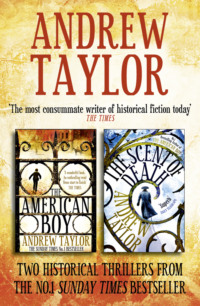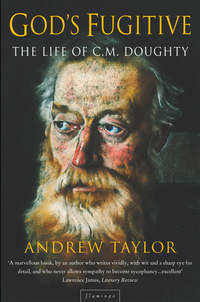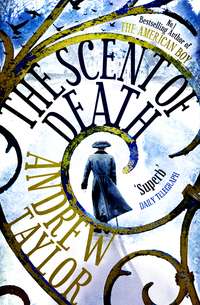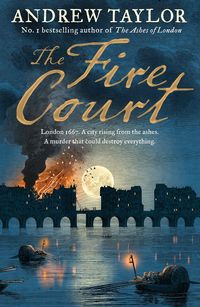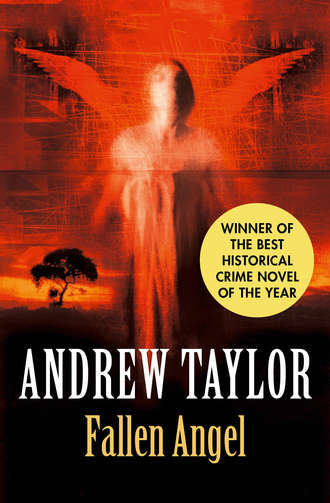
Полная версия
Fallen Angel
This was a secular event. The Graces had never been churchgoers. Eddie’s experience of religion had been limited to the services at school, flat and meaningless affairs.
‘He was an atheist,’ Thelma said firmly when the funeral director tentatively raised the subject of the deceased’s religious preferences. ‘You can keep the vicars out of it, all right? And we don’t want any of those humanists, either.’
His mother’s reaction to Stanley’s death took Eddie by surprise. She showed no outward sign of grief. She gave the impression that death was an irritation and an imposition because of the extra work it entailed. In many ways widowhood seemed to act as a tonic: she was brisker than she had been for years, both physically and mentally.
‘If we can clear out some of your father’s stuff,’ Thelma said as they ate fish and chips in the kitchen on the evening after the funeral, ‘perhaps we can find a lodger.’
Eddie put down his fork. ‘But you wouldn’t want a stranger in the house, would you?’
‘If we want to stay here, we’ve no choice.’
‘But the house is paid for. And haven’t you got a pension from the Paladin?’
‘Call it a pension? Don’t make me laugh. I’ve already talked to them about it. I’ll get a third of what your father got, and that wasn’t much to begin with. It makes me sick. He worked there for over forty years, and you’d think by the way they used to go on that they couldn’t do enough for their staff. They’re sharks. Just like everyone else.’
‘But surely we could manage?’
‘We can’t live on air.’ She stared at him, pursing her lips. ‘When you get another job, perhaps we can think again.’
When. The word hung between them. Eddie knew that his mother meant not when but if. Like his father, she had a low opinion of his capabilities. He thought that she could not have made the point more clearly if she had spoken the word if aloud.
‘So we’re agreed, then,’ Thelma announced.
‘I suppose so.’
She nodded at his plate, at half a portion of cod in greasy batter and a mound of pale, cold chips. ‘Have you finished, then?’
‘Yes.’
‘Well, pass it here.’ Thelma’s appetite, always formidable for such a small person, had increased since she had stopped smoking the previous summer. ‘Waste not, want not.’
‘So we’ll need to clear the back bedroom?’
‘It won’t clear itself, will it?’ said Thelma through a mouthful of Eddie’s supper. ‘And while we’re at it, we might as well sort out the basement. If we have a lodger we’ll need the extra storage space.’
The next few days were very busy. His mother’s haste seemed indecent. The back bedroom had been used as a boxroom for as long as Eddie could remember. Thelma wanted him to throw out most of the contents. She also packed up her husband’s clothes and sent them to a charity shop. One morning she told Eddie to start clearing the basement. Most of the tools and photographic equipment could be sold, she said.
‘It’s not as if you’re that way inclined, after all. You’d better get rid of the photos, too.’
‘What about the dolls’ house?’
‘Leave that for now. But mind you change your trousers. Wear the old jeans, the ones with the hole in the knee.’
Eddie went through the photographs first – the artistic ones in the cupboard, not the ones on the open shelves. The padlock key had vanished. In the end Eddie levered off the hasp with a crowbar.
The photographs had been carefully mounted in albums. The negatives were there too, encased in transparent envelopes and filed in date order in a ring binder. Against each print his father had written a name and a date in his clear, upright hand. Usually he had added a title. ‘Saucy!’ ‘Blowing Bubbles!’ ‘Having the Time of Her Life!’
Eddie leafed slowly through the albums, working backwards. Some of the photographs he thought were quite appealing, and he decided that he would put them to one side to look at more carefully in his bedroom. Most of the girls he recognized. He came across his younger self, too, but did not linger over those photographs. He found the Reynoldses’ daughter, Jenny Wren, and was astonished to see how ugly she had been as a child; memory had been relatively kind to her. Then he found another face he knew, smiling up at him from a photograph with the caption ‘What a Little Tease!’ He stared at the face, his excitement ebbing, leaving a dull sadness behind.
It was Alison. There was no possible room for doubt. Stanley must have taken the photograph at some point during the same summer as the Peeing Game. When else could it have been? Children grew quickly at that age. In the photograph Alison was naked, and just as Eddie remembered her from their games in Carver’s. He even remembered, or thought he did, the ribbon that she wore in her hair.
They had both betrayed him, his father and Alison. Why hadn’t Alison told him? She had been his friend.
After lunch that day his mother sent him out to do some shopping. Eddie was glad of the excuse to escape from the house. He could not stop thinking of Alison. He had not seen her for nearly twenty years, yet her face seen in a photograph still had the power to haunt him.
On his way home, Eddie met Mr and Mrs Reynolds in Rosington Road. He turned the corner and there they were. He had no chance to avoid them. The Graces and the Reynoldses had been on speaking terms since Jenny Wren’s visits to the dolls’ house. Eddie glanced at Mrs Reynolds’s sour, unsympathetic face, wondering whether she had seen him trespassing in Carver’s the previous autumn.
‘Sorry to hear about your dad,’ Mr Reynolds said, his face creasing with concern. ‘Still, at least it was quick: that must have been a blessing for all of you.’
‘Yes. It was very sudden.’
‘Always a good neighbour. Couldn’t have asked for a nicer one.’
The words were intended to comfort, but made Eddie smile, an expression he concealed by turning away and blowing his nose vigorously, as though overwhelmed by the sorrow of the occasion. As he did so he noticed that Mrs Reynolds was staring at him. He dropped his eyes to her chest. He noticed on the lapel of her coat a small enamel badge from the Royal Society for the Protection of Birds.
Perhaps that was why she spent so much time staring over Carver’s, why she had the field glasses. Mrs Reynolds was a bird-watcher, a twitcher. The word brought him dangerously close to a giggle.
‘Let us know if we can help, won’t you?’ Mr Reynolds patted Eddie’s arm. ‘You know where to find us.’
The Reynolds turned into the access road to the council estate, passing a line of garage doors daubed with swastikas and football slogans. Eddie scowled at their backs. A moment later, he let himself into number 29.
‘Where have you been?’ his mother called down from her room. ‘There’s tea in the pot, but don’t blame me if it’s stewed.’
The hall felt different from usual. There was more light. An unexpected draught brushed his face. Almost instantaneously Eddie realized that the door to the basement was standing wide open; Stanley’s death was so recent an event that this in itself was remarkable. Eddie paused and looked through the doorway, down the uncarpeted stairs.
The dolls’ house was still on the workbench. But it was no longer four storeys high. It had been reduced to a mound of splintered wood, torn fabric and flecks of paint. Beside it on the bench was the rusty hatchet which Alison had used to break through the fence between the Graces’ garden and Carver’s, and which Stanley had found lying under the trees at the end of the garden.
Eddie closed the basement door and went into the kitchen. When she came downstairs, his mother did not mention the dolls’ house and nor did he. That evening he piled what was left of it into a large cardboard box, carried it outside and left it beside the dustbin. He and his mother did not speak about it later because there was nothing they wanted to say.
5
‘We do but learn to-day what our better advanced judgments will unteach tomorrow …’
Religio Medici, II, 8
Oliver Rickford put down the phone. ‘It’s all right,’ he said again. ‘It’s not Lucy’s.’
Sally was sitting in the armchair. Her body was trembling. Yvonne hovered behind the chair, her eyes on Oliver. He knelt beside Sally, gripped her arm and shook it gently.
‘Not Lucy’s,’ he repeated. ‘Not Lucy’s hand. I promise.’
Sally lifted her head. On the third try, she succeeded in saying, ‘They can’t be sure. They can’t know it’s not Lucy’s.’
‘They can in this case. The skin is black. Probably from a child of about the same age.’
‘Thank God.’ Sally dabbed at her eyes with a paper handkerchief. ‘What am I saying? It’s someone else’s child.’ Still the shameful Te Deum repeated itself in her mind: Thank God it’s not Lucy, thank God, thank God. ‘Did they tell you anything else?’
Oliver hesitated. ‘They haven’t had time to look at the hand properly. But it looks as if it was cut off with something like an axe. It was very cold.’ He paused again. ‘In fact, they think it may have been kept in a freezer. It was still defrosting.’
Yvonne sucked in her breath. ‘Jesus.’ She glanced at Sally. ‘Sorry.’
Sally was still looking at Oliver. ‘No link with Lucy? You’re sure?’
‘Why should there be? The only possible connection was in the minds of those hacks downstairs.’
Sally clenched her hands, watching without interest as the knuckles turned white.
‘Would it be a good idea to try to rest for a while?’ Oliver suggested. ‘There’s nothing you can do at present.’
Sally was too tired to argue. Her strength had mysteriously evaporated. Clutching the box of paper handkerchiefs, she smiled mechanically at the two police officers and left the room. The door of the room she shared with Michael was closed. She did not want to disturb him, and if he woke up she would not know what to say. Instead she took a deep breath and went into Lucy’s bedroom.
It was like a cell – small, and with a window placed high in the wall. They had intended to decorate before Lucy was born but had failed to find the time. After Lucy’s birth there had been even less time. The wallpaper showed a trellis with a stylized clematis growing up it. In places the wallpaper was coming adrift from the wall, a process which Lucy had actively encouraged, revealing another wallpaper beneath, psychedelic swirls of orange and turquoise from the 1960s.
Sally had dreaded coming here. She had known that the room would smell of Lucy, that everywhere there would be reminders. But it had to be done, sooner or later; in the long run avoiding the room would be worse. She sat down heavily on the bed, which was covered with a duvet whose design showed teddy bears gorging themselves on honey and apparently oblivious of a squadron of enormous bees patrolling the air around their heads. The duvet had been Lucy’s choice, the bribe which had persuaded her to move from her cot to a proper bed.
Automatically, Sally began to tidy the books and toys which were scattered on and around the bedside table. Were all four-year-olds like this? Was chaos their natural environment? Or was Lucy exceptional in this as in so much else?
The book they had been reading on Thursday evening was lying between the bed and the wall. Sally rescued it and marked the place they had reached with a scrap of paper. She ran out of energy and let herself fall back on the bed. She buried her face in the pillow. Why did children smell sweet?
She supposed that she should pray for Lucy. It was then that she realized that she had not read the Morning Office today, or indeed the Evening Office last night. Discipline and regular exercise were as necessary in prayer as in athletics. She closed her eyes and tried to bring her mind into focus.
Nothing happened. No one was there. It was dark and cold and God was absent. It was not that he no longer existed, Sally discovered: it was simply that it no longer mattered to her whether he existed or not. He had become an irrelevancy, something pushed beyond the margins of her life. She tried to say the Lord’s Prayer, but the words dried up long before she had finished. Instead she thought of the severed hand. What sort of person would leave it on a gravestone? Was there a significance in the choice of grave? Perhaps it belonged to a relative of the owner of the hand.
She hoped the child had been dead when they cut off the hand. The idea that he or she had been chopped up, perhaps parcelled in clingfilm and deep-frozen, made it worse for two reasons: it added an illusion of domesticity to what had been done, and it suggested premeditation and a terrible patience. What could have been the motive for such an action? A desire to hurt the child’s mother? Punishment for a theft, a perversion of the Islamic penal code? Sally tried to imagine a need grown so egocentric and powerful that it would stop at nothing, even the carefully calculated destruction of children.
She dug her hand into the pocket of her jeans and wrapped her fingers round Lucy’s sock. She thought of herself and Michael, Lucy and the unknown child, the child’s parents, the old woman gobbling pills in the bedsitter in Belmont Road, the diseased and the abused, the tortured and the dying. The human race never learned by its mistakes: it merely plunged deeper and deeper into a mire of its own making.
At that moment, lying on Lucy’s bed, it became clear to Sally that a loving God would not permit such things. At theological college she had learned the arguments why he might allow suffering. She had even parroted them out for parishioners. Now the arguments were suddenly revealed as specious: at last God was unmasked and revealed as the shit he really was.
She heard voices in the sitting room, one of them a man’s but neither Oliver’s nor Michael’s. She sat up on the bed and wiped away her tears and blew her nose. There was a tap on the door and Yvonne put her head into the room.
‘Mr Maxham’s here. He wondered if you’d be up to having a word with him.’
Sally nodded, and dragged herself to her feet. ‘Has Oliver gone?’
‘About ten minutes ago. He didn’t want to disturb you. He left a note.’
Sally’s body felt hot and heavy. In the bathroom she washed her face and dragged a comb through her hair. In the mirror her face confronted her: a haggard stranger, pale and puffy-eyed, no make-up, hair in a mess.
In the living room, Yvonne was standing by the window, her head bowed, an anxious smile on her face.
‘This is Chief Inspector Maxham. Mrs Appleyard.’
A small, thin man was examining the photographs on the mantelpiece. He turned round, a fraction of a second later than one would have expected.
‘Mrs Appleyard.’ Maxham ambled towards her, hand outstretched. ‘I hope we haven’t disturbed you.’
‘I wasn’t asleep.’ His handshake was dry, hard and cold. She noticed that the hands were a blue-purple colour; he probably suffered from poor circulation. ‘Is there any news?’
‘I’m afraid not. Not yet.’ He gestured to a tall man standing by the door to the kitchen. ‘This is Detective Sergeant Carlow.’
The sergeant nodded to her. He wore a chain-store suit, a dark grey pinstripe whose sleeves and trouser legs were a little too short for him. His skin, his hair and even his eyes looked etiolated, as if he spent too much of his waking life staring at a computer screen under artificial light. His jaw was so prominent that the lower part of his face was broader than the upper.
Maxham nodded to one of her chairs. ‘Do sit down, Mrs Appleyard.’
She remained standing. ‘Have you found anything, anything at all?’
‘It’s early days.’ Maxham had a plump face, the skin criss-crossed with red veins. Behind black-rimmed glasses the eyes were pale islands, neither grey nor blue but somewhere between. The accent was Thames Estuary, very similar to Derek Cutter’s. ‘As far as we can tell, Lucy just walked out of the back door. She –’
‘But she wouldn’t do that. She’s not a fool. She’s been told time and time again –’
‘It seems that she and Ms Vaughan had had a bit of a disagreement. Lucy wanted Ms Vaughan to buy her something, a Christmas present, and Ms Vaughan said no. Then Ms Vaughan went upstairs to the bathroom. She left Lucy sulking behind the sofa. Five minutes later, maybe ten, Ms Vaughan comes down again, hoping Lucy had calmed down. But she was gone. The other little girl and boy hadn’t noticed her going – one was watching TV, the other was upstairs with Ms Vaughan. Lucy’s coat’s missing. And so’s Ms Vaughan’s purse. Big green thing – it was in her handbag on the kitchen table.’
The little madam, Sally thought: she’s not getting away with that sort of behaviour; just wait till I get my hands on her. In an instant she lurched back to the reality of the situation. Her legs began to shake. She sat down suddenly. Maxham sat down, too. He looked expectantly at her. She found a tissue in her sleeve and blew her nose.
At length she said, ‘I thought Carla always locked the doors, put the chain on.’
‘So she says,’ he agreed. ‘But on the back door she’s only got a couple of bolts and a Yale. We think Lucy may have pulled over a stool and climbed up. The bolts had been recently oiled and the catch might have been up on the Yale – Ms Vaughan said she went out in the yard to put something in the dustbin earlier that afternoon, and she wasn’t sure she’d put the catch down when she came in.’
Sally clung to past certainties, hoping to use them to prove that this could not be happening. ‘She couldn’t have got out of the yard. The fence is far too high for her. And there’s a drop on the other side – she doesn’t like jumping down from a height. There’s a gate, isn’t there, into some alley? It’s always locked. I remember Carla telling me.’
‘The gate was unbolted when we got there, Mrs Appleyard.’
‘It’s a high bolt, isn’t it?’ Sally closed her eyes, trying to visualize the yard which she’d seen on a sunny afternoon in the autumn. Dead leaves, brown, yellow and orange, danced over the concrete and gathered in a drift between the two dustbins and the sandpit. ‘Was the bolt stiff?’
‘As it happens, yes. Would you say that Lucy is a physically strong child for her age?’
‘Look at me, Mum.’ Lucy was standing on the edge of her bed in her pyjamas, holding Jimmy up to the ceiling. ‘I’m King Kong.’
‘Not particularly. She’s a little smaller than average for her age.’
Sergeant Carlow was sitting at the table and writing in his notebook. The cuffs of the trousers had risen halfway up his calves, exposing bands of pale and almost hairless skin above the drooping black socks.
A soft hiss filled the silence: Maxham had a habit of sucking in breath every moment or so as if trying to clear obstructions lodged between his teeth; and as he did so he pulled back his lips in the mockery of a smile. ‘We’ve talked to the neighbours all along the street. We’ve talked to the people whose gardens back on to the alley. No one saw her. It was a filthy evening, yesterday. No one was out unless they had to be.’
Sally shouted, ‘Are you saying that someone opened that gate from the outside?’
Maxham shrugged his wiry little body. The plump face looked all wrong on such a scraggy neck. ‘I’m afraid we’re not in a position to draw any conclusions yet, Mrs Appleyard. We’re just investigating the possibilities, you understand. Gathering evidence. I’m sure you know what these things are like from your husband.’
The condescension in his voice made Sally yearn to slap him. He sat there smiling at her. He was going bald at the crown and the grey hair needed cutting. He wore an elderly tweed suit, baggy at the knees and shiny at the elbows, which gave him the incongruous appearance of a none-too-successful farmer on market day. She did not like what she saw, but that did not mean he was bad at his job. Once more he hissed. Now that she had noticed the habit, it irritated and distracted her. She thought of protective geese and hostile serpents.
‘What about dogs?’ she asked, her voice astonishingly calm.
‘We tried that. No joy. Doesn’t prove anything one way or the other. All that rain didn’t help.’
‘And how can I help you?’
Maxham’s head nodded, perhaps as a sign of approval. He took off his glasses and began to polish them with a handkerchief from the top pocket of his jacket. ‘There’s a number of things, Mrs Appleyard. Most of them obvious. We’ll need a good up-to-date photograph of Lucy. We’ll need to talk to you about what she’s like – not just her appearance, what she’s like inside. We’d like to find out exactly what she’s wearing. Everything.’ He inserted a delicate little pause in the conversation. ‘Also, any toys she may have had with her, that sort of thing. Ms Vaughan said she wanted them to go to Woolworth’s and buy a conjuring set. Can you confirm that?’
‘Yes. Lucy and I had an argument about it on the way to Carla’s yesterday morning. My daughter can be very persistent. If she wants something, she’s inclined to go on and on about it until she gets it. And if she doesn’t get it, which is what often happens, she sometimes throws a tantrum.’
‘So you’d agree that her going off all by herself in a huff like that wouldn’t be untypical?’
‘Of course it would be untypical. She’s never done anything like that before.’ Yes, she had, Sally thought: Lucy had tried to run off in shops several times: but surely this was different in kind as well as in degree? ‘But she’s very self-willed. Her trying to run off like that shocks me but it doesn’t altogether surprise me.’
‘Ah.’ Maxham breathed on his glasses one last time, gave them another polish and settled them on the bridge of his nose. ‘I have to say your husband sees Lucy a little differently. He insisted that she wouldn’t run off of her own accord, that she’s far too sensible.’
‘Lucy likes being with her father.’ Sally chose her words carefully, unwilling to point out that she saw about five times more of Lucy than Michael did, and that Michael spoiled her terribly. ‘Perhaps she tends to be better behaved with him than she is with me. But I don’t think that there’s any doubt about the determination she can show. You can ask Carla. Or Margaret Cutter.’ She rushed on, answering the question before Maxham had time to ask it. ‘She’s our vicar’s wife. She runs a crèche at St George’s.’
‘Would you have any objection if we had a look round?’
‘A look where?’
‘All over the flat, if you don’t mind. Lucy’s room, especially, of course. It can help us get a feeling of the missing child, you understand. And if you’d come with us, perhaps you’ll notice if there’s anything missing.’
What did they expect to find, Sally wondered? Lucy’s body under her bed? ‘All right. But my husband’s asleep at present.’
‘Yes, your husband.’ Maxham drew out the words until he was speaking almost in a drawl. He sucked in air. ‘We wouldn’t want to disturb him.’
‘He needs to sleep.’
‘He was up all night.’ Maxham’s voice was neutral, uninflected. ‘I had to ask his friend Mr Rickford to come and collect him this morning. So he got home safely?’
‘Yes.’ Before she could stop herself, Sally added a plea on Michael’s behalf: ‘He was very upset, yesterday. Still is. He’s not himself.’
‘That’s understandable.’ The voice was still neutral, and the want of sympathy was in itself an accusation. ‘I gather he’s had a lot on his plate lately.’
‘Obviously.’ A doubt niggled in Sally’s mind: had Michael had something else to worry about, something that had happened before Lucy’s disappearance? But there was no time for that now. ‘What do you think might have happened?’ She was suddenly furious with Maxham. ‘Come on – you must have some ideas. What are the main possibilities?’
‘Three main scenarios,’ he said briskly. ‘One, she wandered off by herself, and hopefully found shelter. Two, a man or maybe some kids were passing by and thought they’d take her with them. It happens, Mrs Appleyard, I won’t conceal it from you; but it happens less often than you’d believe, so try not to think too much about it.’ His tone was still neutral, and she wondered whether kindness or insensitivity lay behind it. ‘Three: a woman took her. That counts as a separate option because usually the motives are different. You know, mothers who’ve lost their babies and need a replacement. Girls who want a young child to play with, a sort of doll. If that’s what’s happened, we’ll probably get her back safe and sound.’



